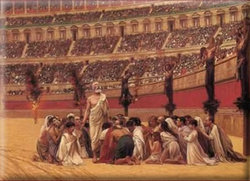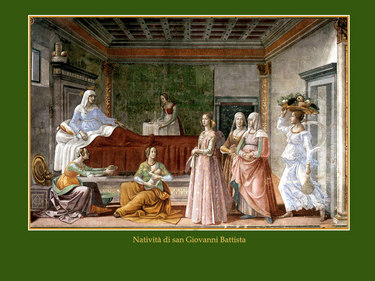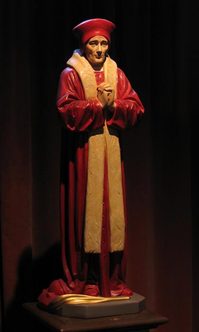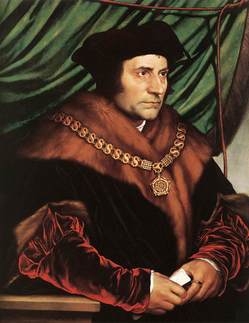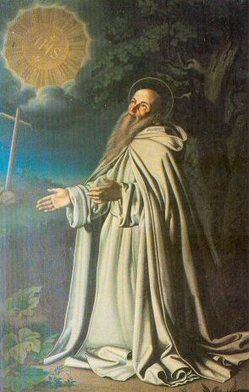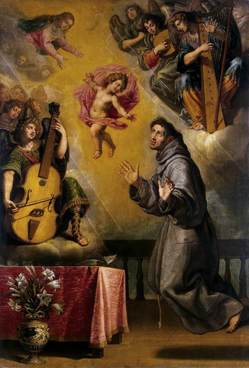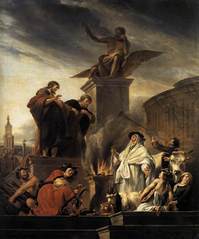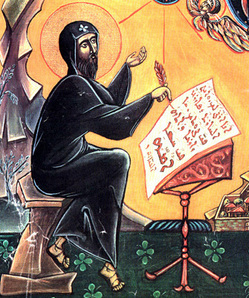Saints: June 2009 Archives
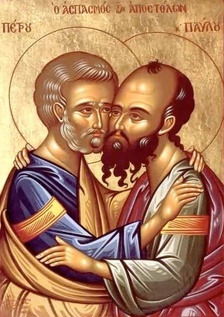
Peter, blest Shepherd! hearken to our cry,
And with a word unloose our guilty chain;
Thou who hast power to open the gates on high
To men below, and power to shut them fast again.
O thou great Doctor, Paul, we here beseech of thee
Lead thou our spirits up to heavenly mystery,
Tills ends the partial knowledge that to us is given
While here below, and we receive the fuller light in heaven.
May everlasting honor, power, and glory be
And jubilation, to the Holy Trinity,
The One God, ever ruling all things mightily,
Throughout all endless ages of eternity. Amen.
In your manner a participant,
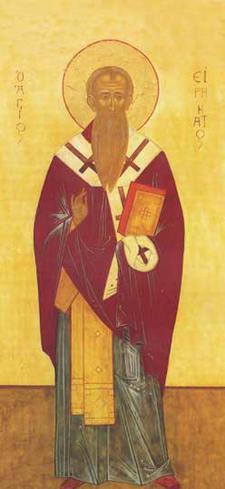
And in your throne a successor of
the Apostles,
You discovered action an entrance into visions,
O inspired one of God.
Therefore directing the Word of Truth,
You suffered for the faith even unto blood.
O Bishop and Martyr Irenaues,
Pray to Christ God that our souls may be saved!
(Troparion, Tone 4)
Give perfection to beginners, O Father; give intelligence to the little ones; give aid to those who are running their course. Give sorrow to the negligent; give fervor of spirit to the lukewarm. Give to the perfect a good consummation; for the sake of Christ Jesus our Lord. Amen.
(Prayer of Saint Irenaeus)
Pope Benedict XVI March 28, 2007 catechesis on Saint Irenaeus is helpful to read.
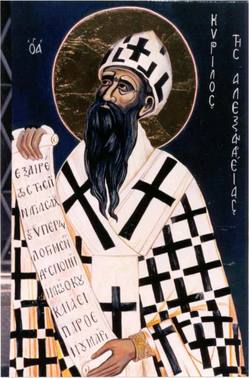 O God, Who did make blessed Cyril, Thy Confessor and
Bishop, the invincible champion of the divine motherhood of he most Blessed
Virgin Mary; grant through his intercession, that we who believe her to be
truly the Mother of God, may be saved through her maternal intercession.
O God, Who did make blessed Cyril, Thy Confessor and
Bishop, the invincible champion of the divine motherhood of he most Blessed
Virgin Mary; grant through his intercession, that we who believe her to be
truly the Mother of God, may be saved through her maternal intercession.
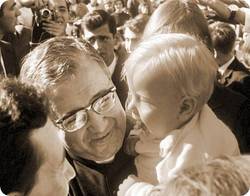 God our Father, you chose Saint Josemaría to proclaim the universal call sanctity and apostolate in the Church. By his example and prayers grant that in faithfully carrying out our daily work in the Spirit of Christ, we may be formed in the likeness of your Son, and together with the most Blessed Virgin Mary, serve the work of redemption with an ardent love.
God our Father, you chose Saint Josemaría to proclaim the universal call sanctity and apostolate in the Church. By his example and prayers grant that in faithfully carrying out our daily work in the Spirit of Christ, we may be formed in the likeness of your Son, and together with the most Blessed Virgin Mary, serve the work of redemption with an ardent love.
Elizabeth the wife of Zachary gave birth to a great man, John the Baptist,
the Precursor of the Lord.
Give me the grace to long for Your holy sacraments, and
especially to rejoice in the presence of Your body, sweet Savior Christ, in the
holy sacrament of the altar. Amen.
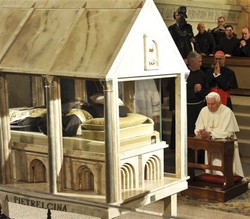
As part of the inaugural observances for the Year of the Priest, Pope Benedict made a pilgrimage to and celebrated the Sacrifice of the Mass Sanctuary of Our Lady of the Graces at San Giovanni Rotondo, resting place of Saint Padre Pio of Pietrelcina. In the days following the feast of the Sacred Heart of Jesus and with devotion to Our Lady in mind, the Pope recalled that the fruit of Padre Pio's close bond with the Sacred Heart of Christ and His mother, Mary, inspired him to found the House for the Relief of Suffering: "All his life and his apostolate took place under the maternal gaze of the Blessed Virgin and by the power of her intercession. Even the House for the Relief of Suffering he considered to be the work of Mary, 'Health of the sick.'
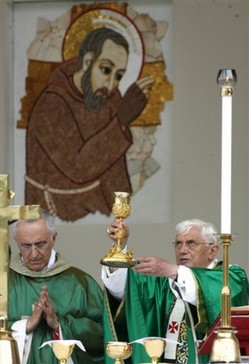
Born Francisco Forgione, at the age 23 the obscure Capuchin
Franciscan friar was said to have received the gift of the sacred stigmata. On
Saint Pio's hands and side the wounds were similar to the stigmata, or the wounds of
Jesus Christ's crucifixion, according to Christian belief. The Pope proposed to
us another model for priests by giving the example of this friar from
Pietrelcina: "A simple man of humble origins, 'seized by Christ' (Phil 3:12)
... to make of him an elected instrument of the perennial power of his Cross:
the power of love for souls, forgiveness and reconciliation, spiritual
fatherhood, effective solidarity with the suffering. The stigmata, that marked
his body, closely united him to the Crucified and Risen Christ."
Relating today's gospel with the life of Saint Pio, His
Holiness also said to the gathered faithful:
The solemn gesture of calming the stormy sea is clearly a
sign of the lordship of Christ over the negative powers and it induces us to think
of His divinity: "Who is He - ask the disciples in wonder -that even the
wind and the sea obey him?" (Mk 4:41). Their faith is not yet steadfast, it is
taking shape, is a mixture of fear and trust; rather Jesus trusting abandonment
to the Father is full and pure. This is why He sleeps during the storm,
completely safe in the arms of God - but there will come a time when Jesus will
feel anxiety and fear: When His time comes, He shall feel upon himself the
whole weight of the sins of humanity, as a massive swell that is about to fall
upon Him. Oh yes, that shall be a terrible storm, not a cosmic one, but a
spiritual one. It will be Evil's last, extreme assault against the Son of God....
In that hour, Jesus was on the one hand entirely One with the Father, fully
given over to him - on the other, as in solidarity with sinners, He was
separated and He felt abandoned.
Remaining united to Jesus, [Padre Pio] always had his sights
on the depths of the human drama, and this was why he offered his many
sufferings, why he was able to spend himself in the care for and relief of the
sick - a privileged sign of God's mercy, of his kingdom which is coming,
indeed, which is already in the world, a sign of the victory of love and life
over sin and death. Guide souls and relieving suffering: thus we can sum up the
mission of Saint Pio of Pietrelcina: as the servant of God, Pope Paul VI said
of him."
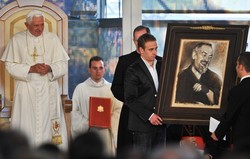
At one point in his address the Benedict spoke to the Franciscan friars and those connected with the spiritual groups linked to Saint Pio and anyone else, the Pope affirmed: "The risks of activism and secularization are always present, so my visit was also meant to confirm fidelity to the mission inherited from your beloved Father. Many of you, religious and laity, are so taken by the full duties required by the service to pilgrims, or the sick in the hospital, you run the risk of neglecting the real need: to listen to Christ to do the will of God. When you see that you are close to running this risk, look to Padre Pio: In his example, his sufferings, and invoke his intercession, because it obtains from the Lord the light and strength that you need to continue his mission soaked by love for God and fraternal charity." Following Mass, the Holy Father led the faithful in the Angelus prayer (the great prayer recalling the Incarnation) calling to mind Padre Pio's devotion to the Blessed Virgin Mary. Benedict remarked, "To the intercession of Our Lady and St Pio of Pietrelcina I would like to entrust the Special Year for Priests, which I opened last Friday on the Solemnity of the Sacred Heart of Jesus. May it be a privileged opportunity to highlight the value of the mission and holiness of priests to serve the Church and humanity in the third millennium!"
Watch the video clip
Another video explaining more of Padre Pio's life
Read the papal address to priests and youth
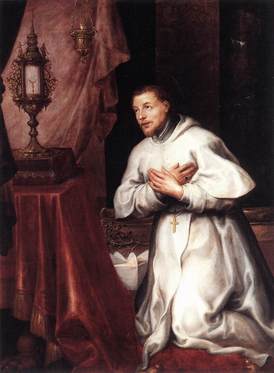
O God, Who did raise up blessed Norbert, Thy Confessor and Bishop, to be an illustrious preacher of Thy word, and through him did render Thy Church fruitful with a new offspring; grant we beseech Thee, that helped by his merits we may practice by Thy grace what he taught both by word and deed.
O God, Who by the zeal of blessed Boniface, Thy Martyr and Bishop, did vouchsafe to call a multitude of people to the knowledge of Thy Name; mercifully grant that we who celebrate his festival may also enjoy his protection.
From a Letter by Saint Boniface
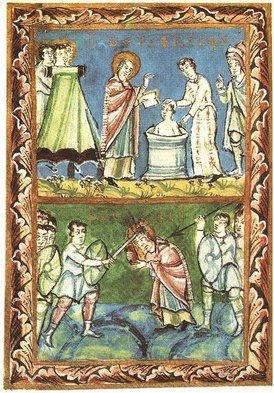
In her voyage across the ocean of this world, the church is
like a great ship being pounded by the waves of life's different stresses. Our
duty is not to abandon ship but to keep her on her course. The ancient Father
showed us how we should carry out this duty: Clement, Cornelius and many others
in the city of Rome, Cyprian at Carthage, Athanasius at Alexandria. They all
lived under emperors who were pagans; they all steered Christ's ship -or rather
his most dear spouse, the church. This they did by teaching and defending her,
by their labors and sufferings, even to the shedding of blood.
I am terrified when I think of all this. "Fear and trembling
came upon me and the darkness" of my sins "almost covered me." I would gladly
give up the task of guiding the church which I have accepted if I could find
such an action warranted by the example of the Father or by Holy Scripture.
Since this is the case, and since the truth can be assaulted but never defeated
or falsified, with our tired mind let us turn to the words of Solomon: "Trust
in the Lord with all your heart and do not rely on your own prudence. Think on
him in all your ways, and he will guide your steps." In another place he says:
"The name of the Lord is an impregnable tower. The just man seeks refuge in it
and he will be saved."
Let us stand fast in what is right and prepare our souls for
trial. Let us wait upon God's strengthening aid and say to him: "O Lord, you
have been our refuge in all generations." Let us trust in him who has placed
this burden upon us. What we ourselves cannot bear let us bear with the help of
Christ. For he is all-powerful and he tells us: "My yoke is easy and my burden
is light."
Let us continue to fight on the day of the Lord. "The days
of anguish and of tribulation" have overtaken us; if God so wills, "let us die
for the holy laws of our fathers," so that we may deserve to obtain an eternal
inheritance with them.
Let us be neither dogs that do not bark nor silent onlookers
nor paid servants who run away before the wolf. Instead let us be careful
shepherds watching over Christ's flock. Let us preach the whole of God's plan
to the powerful and to the humble, to rich and to the poor, to people of every
rank and age, as far as God gives us the strength, in season and out of season,
as Saint Gregory writes in his Book of Pastoral Instruction.
The African martyrs add another page to the martyrology--the
Church's role of honor--an occasion both of mourning and of joy. This is a page
worthy in every way to be added to the annals of that Africa of earlier times
which we, living in this era and being people of little faith, never expected
to be repeated.
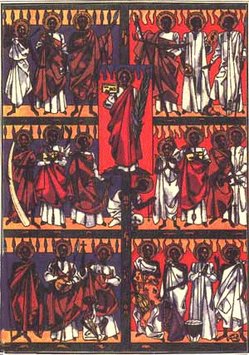
In earlier times there occurred those famous deeds, so
moving to the spirit, of the martyrs of Scilli, of Carthage and of that "white
robed army" of Utica commemorated by Saint Augustine and Prudentius; of the
martyrs of Egypt so highly praised by Saint John Chrysostom and of the martyrs
of the Vandal persecution. Who would have thought that in our days we should
have witnessed events as heroic and glorious?
Who could have predicted to the famous African confessors
and martyrs such as Cyprian, Felicity, Perpetua and the greatest of all,
Augustine, that we would one day add the names so dear to us as Charles Lwanga
and Matthias Mulumba Lekemba and their twenty companions? Nor must we forget
those members of the Anglican Church who also died for the name of Christ.
These African martyrs herald the dawn of a new age. If only
the mind of man might be directed not toward persecutions and religious
conflicts but toward a rebirth of Christianity and civilization!
Africa has been washed by the blood of these latest martyrs,
the first of this new age (and, God willing, let them be the last, although
such a holocaust is precious indeed). Africa is reborn free and independent.
The infamous crime by which these young men were put to death was so unspeakable and so expressive of the times. It shows us clearly that a new people needs a moral foundation, needs new spiritual customs firmly planted, to be handed down to posterirty. Symbolically, this crime also reveals that a simple and rough way of life -enriched by many fine human qualities yet enslaved by its own weakness and corruption--must give way to a more civilized life wherein the higher expressions of the mind and better social conditions prevail. (Pope Paul VI, homily at the canonization of St Charles, 1963)
Father, You have made the blood of the martyrs the seed of Christians. May the witness of Saint Charles and his companions and their loyalty to Christ in the face of torture inspire countless men and women to live the Christian faith.
The saints were seized and brought before the prefect of Rome, whose name was Rusticus. As they stood before the judgment seat, Rusticus the prefect said to Justin, "Above all, have faith in the gods and obey the emperors." Justin said, "We cannot be accused or condemned for obeying the commands of Our Savior, Jesus Christ."
Rusticus said, "What system of teaching do you profess?" Justin said, "I have tried to learn about every system, but I have accepted the true doctrines of the Christians, though these are not approved by those who are held fast by error." The prefect Rusticus said, "are those doctrines approved by you, wretch that you are?" Justin said, "Yes, for I follow them with their correct teaching."
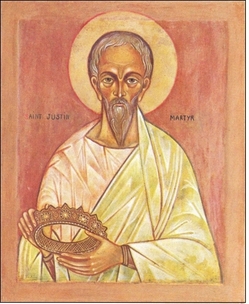
The prefect Rusticus said, "What sort of teaching is that?" Justin said, "Worship the God of the Christians. We hold him to be from the beginning the one creator and maker of the whole creation, of things seen and things and unseen. We worship also the Lord Jesus Christ, the Son of God. He was foretold by the prophets as the future herald of salvation for the human race and the teacher of distinguished disciples. For myself, since I am a human being, I consider that what I say is insignificant in comparison with his infinite godhead. I acknowledge the existence of a prophetic power, for the one I have just spoken of as the Son of God was the subject of prophecy. I know that the prophets were inspired from above from when they spoke of his coming among us."
Rusticus said, "You are a Christian, then?" Justin said, "Yes, I am a Christian."
The prefect said to Justin, "You are called a learned man and think you know what is true teaching. Listen. If you were scourged and beheaded, are you convinced that you would go up to heaven?" Justin said, "I hope that I shall enter God's house if I suffer in that way. For I know that God's favor is stored up until the end of the whole world for all who have lived good lives."
The prefect Rusticus said, "Do you have an idea that you will go up to heaven to receive some suitable rewards?" Justin said, "It is not an idea that I have; it is something I know well and hold to be most certain." The prefect Rusticus said, "Now let us come to the point at issue, which is necessary and urgent. Gather round then and with one accord offer sacrifice to the gods." Justin said, "No one who is right-thinking stoops from true worship to false worship."
The prefect Rusticus said, "If you do not do as you are
commanded you will be tortured without mercy." Justin said,, "We hope to suffer
torment for the sake of Our Lord Jesus Christ, and so be saved. For this will
bring us salvation and confidence as we stand before the more terrible and
universal judgment seat of our Lord and Savior." In the same way the other
martyrs said, "Do what you will. We are Christians; we do not offer sacrifice
to idols."
The prefect Rusticus pronounced the sentence, saying, "Let those who have refused to sacrifice to the gods and obey the command of the emperor be scourged and led away to suffer away to suffer capital punishment according to the ruling of the laws." Glorifying God, the holy martyrs went out to the accustomed place. They were beheaded and so fulfilled their witness of martyrdom in confessing their faith in their savior.
